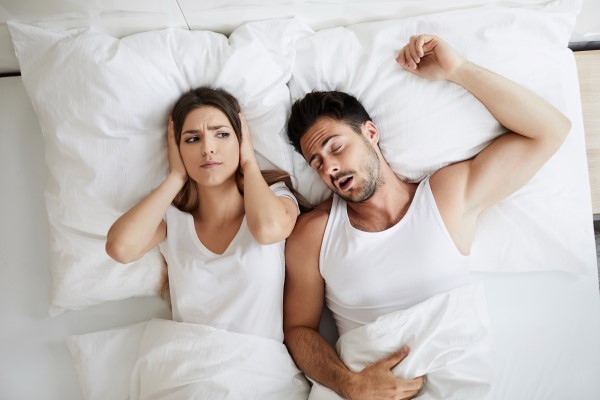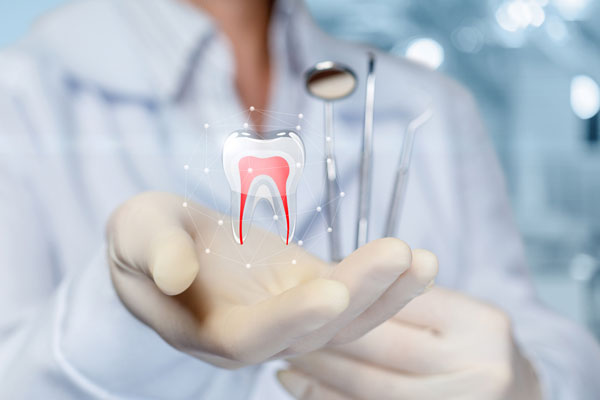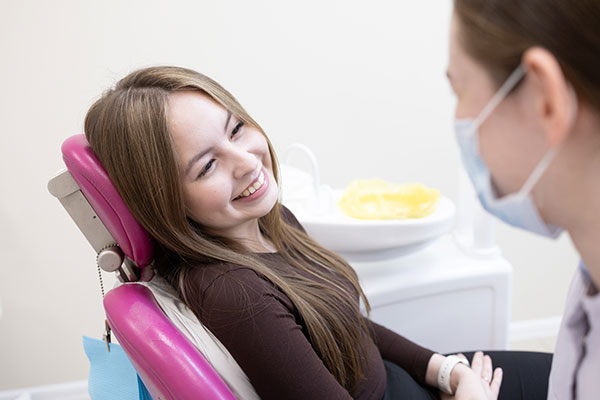Common Questions About Dental Sleep Apnea Treatment

Sleep apnea is a common condition that limits one's ability to breathe throughout the night. The airway becomes obstructed, which results in a lack of oxygen flow. Sleep apnea is very dangerous and can cause serious health concerns.
Thankfully, general dentists have a few approaches to tackling sleep apnea and managing it so that proper breathing and sleeping can take place. The most common way that general dentists treat sleep apnea is with custom-made oral appliances. They are known to produce successful results, rarely failing. Keep reading to find out more!
What to know about sleep apnea treatment in dentistry
Outlined below are some commonly asked questions and answers about dental sleep apnea treatment. Review the following information when exploring the different treatment options.
1. How does a dentist treat sleep apnea?
General dentists tend to treat sleep apnea with oral appliance therapy. There are two oral appliances that are used, the first being a mandibular advancement device and the second being a tongue retaining device.
Mandibular advancement devices look similar to mouth guards. They snap over the upper and lower arch of the oral cavity and are secured in place with metal hinges on both ends. The hinges also make it possible for the lower arch of the jaw to remain in a forward position, thus preventing the airway from becoming obstructed.
Tongue retaining devices, on the other hand, are used less commonly. However, when prescribed, individuals should expect to wear a splint-like appliance that holds the tongue in place. Holding the tongue in place ensures that the airway does not become obstructed while sleeping.
2. Can a dentist cure sleep apnea?
While dentists can treat sleep apnea, there is not necessarily a cure as the condition is ongoing. Oral appliance therapy can be quite effective in keeping sleep apnea symptoms low, ultimately leading to full management, which eliminates symptoms.
3. How long do oral appliances take to work?
Oral appliance therapy for sleep apnea tends to work instantly! The appliances do have to be custom-made by a dental lab; however, that usually only takes a couple of weeks. Once complete, sufferers of sleep apnea can begin wearing the device at night.
4. Are oral appliances for sleep apnea effective?
Yes! Oral appliance therapy for sleep apnea is known to be quite effective. While other forms of treatment may have to be integrated, mandibular devices and tongue retaining ones help ensure that the airway remains uncompromised throughout the night.
Unlike other treatment options, like CPAP machines, oral appliances are comfortable and do not require motorized machines. This makes sleeping easier and less restrictive.
Getting started with sleep apnea treatment in dentistry
When suffering from sleep apnea, the best thing to do is to consult with a dentist. General dentists are trained to address, manage, and treat sleep apnea through oral appliance therapy. Reach out today to find out more or to get scheduled for an initial appointment.
Request an appointment here: https://thechesterfielddentist.com or call Chesterfield Dentist at (804) 412-0867 for an appointment in our Chester office.
Check out what others are saying about our dental services on Yelp: Do I Have Sleep Apnea in Chester, VA.
Recent Posts
Sleep apnea is a serious sleep disorder that affects millions of individuals worldwide. It occurs when breathing repeatedly stops and starts during sleep, disrupting rest and potentially causing long-term health consequences. Many people are unaware that a general dentist plays a key role in diagnosing and managing sleep apnea, particularly with non-invasive treatment solutions. By…
Sleep apnea is a fairly common medical condition that affects millions of Americans every day and, in some cases, can have life-threatening side effects. To get the right kind of help for your apnea, it first helps to understand the causes of this sleep condition, what the different causes mean for treatment, and how you…
Seeking treatment for sleep apnea is important for your general health. Your general dentist can detect signs of this sleep disorder during a comprehensive dental exam. The sleep doctor can work with your dentist to correct the problem. Here are the details about when to see a dentist for sleep apnea.This sleep disorder makes a…
Sleep apnea can lead to more serious health conditions. This sleeping disorder can cause heart disease and high blood pressure. Breathing pauses while sleeping at night can result in daytime tiredness and fatigue. Treating this disorder can improve a person’s health and well-being. If you want to know the available treatments for sleep apnea, here…


